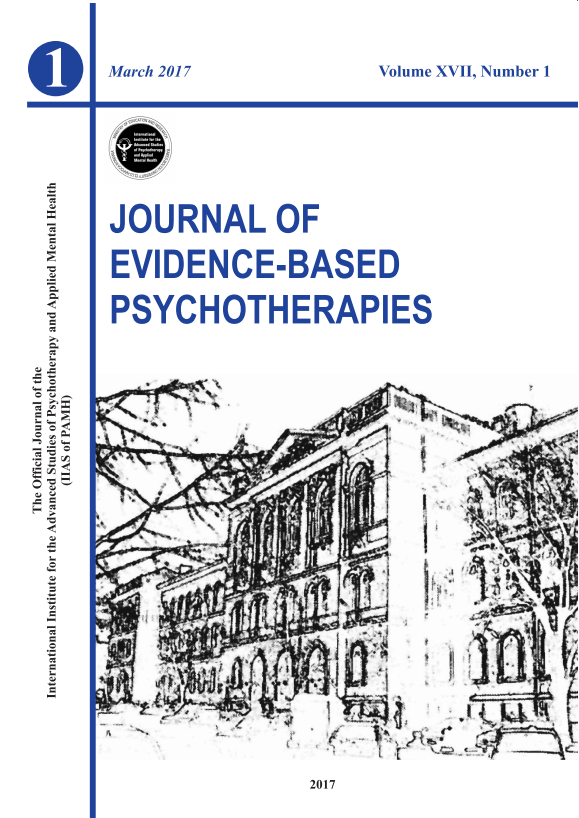Positive Illusions 2
SELF ENHANCING BELIEFS RELATIONSHIP TO PSYCHOLOGICAL DISTRESS EXAMINED BY ANXIETY RELATED ATTENTIONAL BIASES
Despite robust data and influential arguments supporting the positive illusion theory, the potential benefits of self-enhancement have been a controversial research topic in social and health psychology. Some critics proposed that self-enhancement reflects little more than defensive denial and serves to camouflage psychological distress. We propose that anxiety related attentional biases, as valid implicit measures of distress, may help us see more clearly into this debate. Participants were 102 undergraduate students. Although results revealed that overall, high and medium self-enhancers had better performance on a color naming task and were less affected by emotionally arousing content compared to low self enhancers; high self enhancers were more affected by socially rejecting content. Discussion centers on the possible buffering effects of self-enhancing beliefs at unconscious levels.
Can we read others’ minds? Rational beliefs, positive illusions and mental health
With the exception of pathological cases, all people seem to have at least a rudimentary mind reading capacity. The most important consequence is the capacity to predict the behavior of other individuals in various social settings. People are capable of meta-perception but studies show that self-report measures of mind reading skills are poor predictors of actual mind reading accuracy. The aim of this study was to establish people’s evaluation of their own mind reading abilities, which contribute significantly to their state of well-being. In other words, is it healthy to consider that we can read others’ thoughts, emotions, intentions, and can we anticipate and predict their behavior with great precision? We started from the assumption that these over evaluations belong to the field of positive illusions, along with unrealistically positive views of the self and unrealistic optimism. Thus, they give the one that beholds them the illusion of control, in situations characterized by reduced possibilities of control. Another direction of research question concerned the connection between mind reading beliefs and the level of irrational beliefs of the subjects, the implication of which in emotional distress is well-known. Our results showed that (1) men have the tendency of overestimating their abilities to mind read compared to women; (2) the evaluation of mind reading abilities as being high can function as positive illusions; (3) these beliefs are common among subjects with a high level of irrationality (4) positively biased opinions regarding our own abilities to read the others’ mind and predict their outcomes, contribute significantly to the prediction of mental health.
Categories
- Vol XXIV, No.1, 2024, Special Issue (9)
- Vol XXIII, No.2, 2023 (9)
- Vol XXIII, No.1, 2023, Special Issue (8)
- Vol XXII. No.2, 2022 (9)
- Vol XXII, No.1, 2022 (9)
- Vol XXI, No. 2, 2021 (11)
- Vol XXI, No. 1, 2021 (8)
- Vol XX, No.2, 2020 (10)
- Vol XX, No.1, 2020 (8)
- Vol XIX, No.2, 2019 (9)
- Vol XIX, No.1, 2019 (9)
- Vol XVIII, No. 2, 2018 (10)
- Vol XVIII, No. 1, 2018 (10)
- Vol XVI, No. 2, 2016 (9)
- About (7)
- Vol XVII, No. 2, 2017 (10)
- Vol XVII, No. 1, 2017 (9)
- Vol XVI, No. 1, 2016 (9)
- Vol XV, No. 2, 2015 (9)
- Vol XV, No. 1, 2015 (12)
- Vol XIV, No. 2, 2014 (13)
- Vol XIV, No. 1, 2014 (7)
- Vol XIII, No. 2, 2013 (13)
- Vol XIII, Special Issue 2a, 2013 (11)
- Vol XIII, Special Issue 1a, 2013 (7)
- Vol XIII, No. 1, 2013 (8)
- Vol XII, No. 2, 2012 (8)
- Vol XII, No. 1, 2012 (9)
- Vol XI, No. 2, 2011 (11)
- Vol XI, No. 1, 2011 (8)
- Vol X, No. 1, 2010 (9)
- Vol IX, No. 2, 2009 (8)
- Vol IX, No. 1, 2009 (9)
- Vol VIII, No. 2, 2008 (11)
- Vol VIII, No. 1, 2008 (9)
- Vol VII, No. 2, 2007 (5)
- Vol VII, No. 1, 2007 (7)
- Vol VI, No. 2, 2006 (9)
- Vol VI, No. 1, 2006 (8)
- Vol V, No. 2, 2005 (7)
- Vol V, No. 1, 2005 (6)
- Vol IV, No. 2, 2004 (3)
